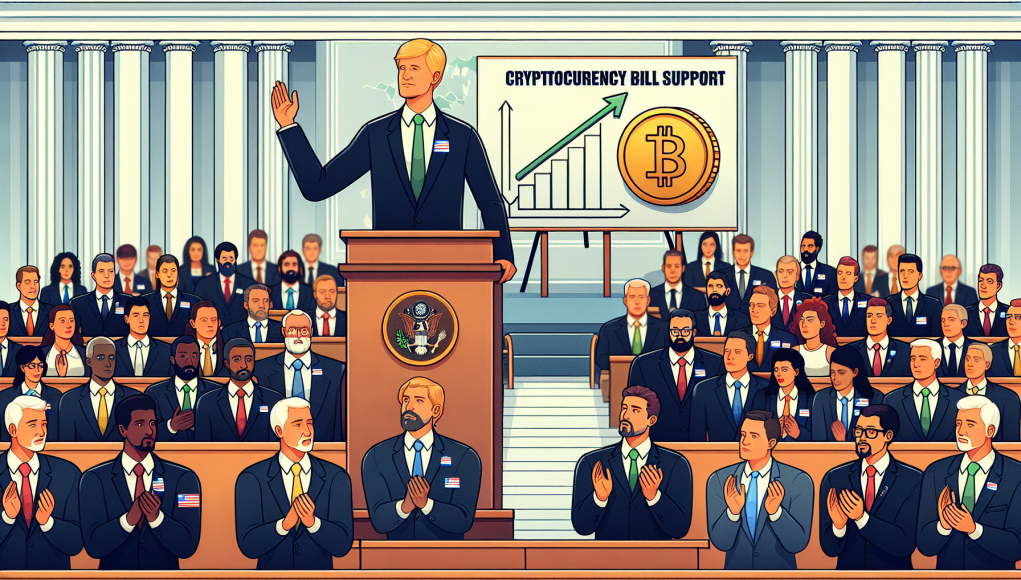In a development that sets the stage for a pivotal moment in cryptocurrency regulation, former President Donald Trump has signaled that House GOP members who initially hesitated will ultimately endorse the new cryptocurrency bill. Despite earlier reservations about the bill’s structure, Trump’s recent declaration strongly suggests a brewing consensus within the Republican ranks—one that could reshape the financial and technological landscape for workers and businesses alike.
The intrigue surrounding the bill stems from its delicate balance between innovation and oversight. Cryptocurrency, an industry initially driven by idealists and entrepreneurs aiming to decentralize financial power, has matured into a complex ecosystem attracting congressional scrutiny. On the surface, the resistance from some GOP lawmakers seemed rooted in fears of regulatory overreach that might stifle crypto freedom. Yet, Trump’s optimism about eventual GOP support reflects a growing recognition: regulation might be not just inevitable, but necessary to foster sustainable growth in digital finance.
What does this mean for the broader world of work? Cryptocurrency and blockchain technologies are slowly but assuredly weaving into the fabric of various industries—from finance and real estate to supply chain management and freelance gig platforms. A clear regulatory framework promises to diminish uncertainty, encourage innovation, and expand adoption, thereby unleashing new job categories and transforming traditional roles.
Resistance to the bill initially revolved around structural concerns—primarily the fear that new rules might impose burdensome compliance costs or give excessive authority to federal regulators at the expense of market participants. Trump’s prediction suggests that these concerns are either being addressed behind closed doors or are giving way to a pragmatic understanding that a fragmented or nonexistent regulatory approach would be far more detrimental in the long run.
Ultimately, the expected GOP alignment signals a pivotal shift in Washington’s approach to emerging technologies. Rather than viewing crypto solely as a disruptive unknown, policymakers appear ready to engage constructively, shaping legislation that balances protection with encouragement. For the workforce, this could translate into a surge in crypto-related jobs across sectors—ranging from programming and cybersecurity to compliance and financial analysis.
As digital currencies continue to challenge conventional financial structures, the bill offers a vital opportunity to redefine how work and economic transactions intersect with technology. A unified GOP stance may not only expedite the bill’s passage but also send a powerful signal to global markets: the U.S. is prepared to lead in crypto innovation under a framework that upholds responsibility without hampering creativity.
For workers navigating this evolving landscape, the takeaway is clear. Change is imminent, and with it comes opportunity. Embracing the ripple effects of crypto regulation could unlock new career paths and entrepreneurial ventures previously obscured by uncertainty. The debate over the bill—once a source of friction—now stands as a catalyst for possibility, emphasizing that thoughtful governance can coexist with technological progress to enhance the future of work.
In the coming months, as House GOP members rally behind the bill, the narrative will shift from resistance to collaboration. This legislative milestone will be watched closely by industries and professionals striving to understand and harness the power of decentralized finance. Trump’s confidence in eventual GOP unity serves as a reminder that even in contentious policy arenas, progress often comes through dialogue, compromise, and shared vision for growth.
For those in the workforce and the broader community of innovators, the evolving crypto regulation landscape heralds a new chapter—one where governance and technology align to create fertile ground for transformation and prosperity.

























